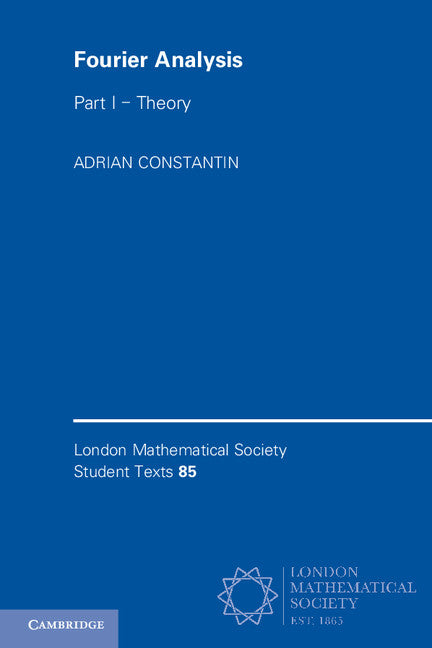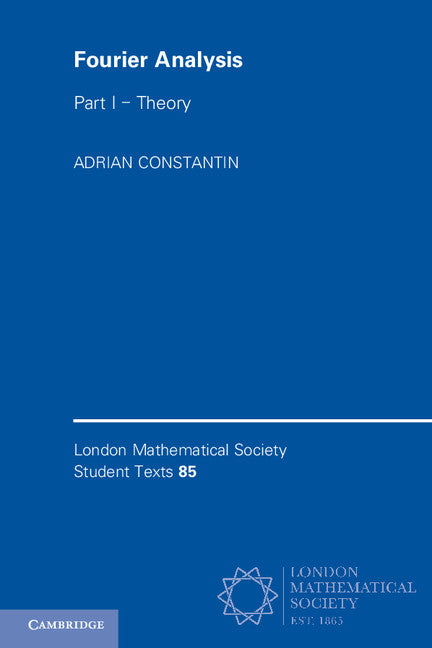Freshly Printed - allow 4 days lead
Couldn't load pickup availability
Fourier Analysis: Volume 1, Theory
A two-volume advanced text for graduate students. This first volume covers the theory of Fourier analysis.
Adrian Constantin (Author)
9781107620353, Cambridge University Press
Paperback / softback, published 31 May 2016
366 pages, 50 b/w illus. 200 exercises
22.8 x 15.2 x 2 cm, 0.52 kg
'[Fourier Analysis: Volume l - Theory is] fabulous … Constantin structures his exercise sets beautifully, I think: they are abundant and long, covering a spectrum of levels of difficulty; each set is followed immediately by a section of hints (in one-one correspondence); finally the hints sections are followed by very detailed and well-written solutions (also bijectively). Can there be any clearer homage to the maxim that to learn mathematics one has to get one's hands really dirty? To boot, attention to detail is ubiquitous: it's everywhere in Constantin's presentation of proofs and arguments, as well as examples, all throughout the narrative itself. The entire presentation is very much to the point and the student who works through this book will come out knowing some real mathematics very well.' Michael Berg, MAA Reviews
Fourier analysis aims to decompose functions into a superposition of simple trigonometric functions, whose special features can be exploited to isolate specific components into manageable clusters before reassembling the pieces. This two-volume text presents a largely self-contained treatment, comprising not just the major theoretical aspects (Part I) but also exploring links to other areas of mathematics and applications to science and technology (Part II). Following the historical and conceptual genesis, this book (Part I) provides overviews of basic measure theory and functional analysis, with added insight into complex analysis and the theory of distributions. The material is intended for both beginning and advanced graduate students with a thorough knowledge of advanced calculus and linear algebra. Historical notes are provided and topics are illustrated at every stage by examples and exercises, with separate hints and solutions, thus making the exposition useful both as a course textbook and for individual study.
1. Introduction
2. The Lebesgue measure and integral
3. Elements of functional analysis
4. Convergence results for Fourier series
5. Fourier transforms
6. Multi-dimensional Fourier analysis
7. A glance at some advanced topics
Appendix: historical notes
References
Index.
Subject Areas: Mathematical modelling [PBWH], Complex analysis, complex variables [PBKD], Real analysis, real variables [PBKB], Calculus & mathematical analysis [PBK]


